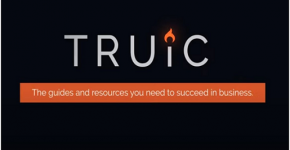Content, Links, and Keywords: The Triad of SEO Success
Welcome to the fascinating world where content, links, and keywords team up to take your website to the top of the digital charts! Imagine them as the three musketeers of the online world, working together to make your website shine in the eyes of search engines.
Now, what’s this triad all about? Well, let’s break it down. According to SEO Toronto experts, content is one of the most important components of your website. It’s the articles, videos, or images that inform, entertain, or help your visitors. Keywords are the secret codes that search engines use to find your content. And links? They’re like recommendations from other websites.
Think of it this way – when these three elements work in harmony, it’s like a perfectly choreographed dance. They boost your website’s visibility, credibility, and success in the vast digital landscape.
Understanding how content, links, and keywords intertwine is like having the keys to unlock the door to SEO success. Throughout this article, we’ll explore their roles, their impact, and how you can harness their power to make your website a shining star in the world of search engine optimization. So, let’s begin!
Understanding SEO Basics
SEO means Search Engine Optimization. It’s like giving your website a map and saying, “Hey, come check this place out; it’s awesome!” Think of search engines as guides leading people to websites. SEO helps these guides understand what your website is all about.
Let’s break it down. Picture your website as a book in a library. When someone searches for something related to your book’s topic, you want yours to be right at the top of the pile, right? That’s where content, links, and keywords come into play.
The Significance of Content in SEO.
Let’s say you are looking for a recipe for a classic Canadian poutine. You stumble upon a website that has a bunch of fancy words but doesn’t really tell you how to make that delicious dish. Frustrating, right? That’s where content becomes crucial. Good content isn’t just about sounding smart; it’s about being helpful, informative, and engaging.
When you provide content that’s rich, informative, and tailored to what your audience wants, it’s like rolling out a red carpet for search engines. They love it! Quality content is what makes your website stand out in the digital crowd. It’s what keeps visitors glued to your page and coming back for more content.
SEO and content go hand in hand. The more the content is according to your audience, the more likely search engines will showcase your website to others looking for similar stuff.
Role of Keywords in SEO.
Keywords are the secret terms people search for when they want to know something. For instance, imagine you’re on a quest to find the best hiking trails in the great outdoors. You’d likely type in something like “scenic hiking trails near me” into the search bar. Those words you used – they’re the keywords.
Choosing the right keywords for your website is like choosing the right bait for fishing. You want to use the ones that your audience is using when they’re searching. A lot of tools can be used in this keyword expedition. They help you discover which words or phrases your audience is searching for.
Search engines are smart cookies! They can tell if your content is genuine or if you’re just trying to trick them. So, sprinkle those keywords naturally throughout your content, making sure it reads smoothly and makes sense.
Types of Keywords
First off, there are short-tail keywords. They’re like big signposts, directing a broad crowd to certain topics. Then, there are long-tail keywords, which are longer phrases that are more specific, such as “best hiking trails in the mountains” or “easy pancake recipes without eggs.” These keywords are like detailed maps, guiding a smaller, more focused audience straight to what they need.
You’ve got navigational keywords, which help users find a particular website or brand, like searching for a specific online store or social media platform. Then, there are informational keywords. These are used when someone is seeking information or answers to questions, such as “How to bake a cake” or “History of the Great Lakes.” Lastly, there are transactional keywords, which indicate that a person is ready to make a purchase or take action, like “buy hiking boots” or “subscribe to a newsletter.”
Content Optimization with Keywords
Imagine you’re telling a captivating story. You wouldn’t randomly throw in words that don’t fit, right? Similarly, when optimizing content with keywords, it’s crucial to make them feel natural and relevant to the topic you’re discussing. If you’re writing about the best hiking trails, your keywords should organically fit into sentences, enhancing the overall narrative.
But here’s the trick – don’t overdo it! Too many keywords can make your content sound robotic and turn off your readers. Search engines have become a lot smarter. That’s why you should try to naturally incorporate keywords throughout your content.
Tools like Yoast SEO or Moz can be your trusty sidekicks in this keyword optimization journey. They help you analyze your content and provide suggestions to make your keywords flow smoothly.
The Evolution of SEO and Keywords
Back in the early days of the internet, SEO and keywords were like a simple game of hide-and-seek. People would stuff their web pages with keywords. But as technology advanced, so did the algorithms behind search engines. They became smarter and more sophisticated.
Search engines now focus on providing users with the best content. This has led to newer strategies for keywords. It’s no longer about using the same keyword repeatedly but about using variations and synonyms.
Moreover, SEO has become more holistic. It’s not just about keywords anymore; it’s about delivering high-quality, user-friendly experiences.
The Power of Links in SEO
Picture this: you stumble upon a great article that links to another related article or website. That link you just clicked? It’s not just a clickable line; it’s a signal telling search engines, “Hey, this website is worth checking out!” That’s the power of links in SEO.
Links come in two main flavors: internal links and external links. Internal links connect distinct pages, guiding users to explore more. External links, on the other hand, are connections from one site to another.
But here’s the catch – it’s more specific to quality. Good-quality backlinks are more beneficial than random ones. Building good relationships and creating valuable content can earn you those golden backlinks that help your website climb up the SEO ladder.
Earning Quality Backlinks
So, what are backlinks exactly? Well, they’re like referrals from other websites. If an authentic website links to yours, it’s like a vote of confidence, signaling to search engines that your website is worth exploring.
Earning quality backlinks is all about building relationships and writing great content. Imagine you’ve written a fantastic article about hiking tips. Now, if influential hiking blogs or respected outdoor magazines link to your article, that’s the gold mine of backlinks! These high-quality links from reputable sources are more important.
So, how do you earn these precious backlinks? Well, it’s a bit like planting seeds and nurturing them. Engage with influencers, participate in industry forums, and create share-worthy content. Guest posting on authoritative websites or collaborating on projects can also earn you those coveted backlinks.
Link Building Best Practices
First things first, quality over quantity is the name of the game. Think of link-building like building friendships – you’d prefer a few genuine buddies over a big crowd of strangers, right?
The best approach is to create top-notch content. It’s like being the go-to person for reliable information – everyone wants to share what you have to say.
Another great strategy is outreach. Don’t be shy! Approach people in your industry. Show them your awesome content and politely ask if they would want to link.
Avoid falling into the trap of shady practices like buying links or joining link schemes. Search engines can sniff out these shortcuts, and they won’t do your website any favors. Instead, focus on earning links organically.
The Interplay of Content, Links, and Keywords
Content is the storyteller of your website. It’s not just about filling up pages with words; it’s about sharing valuable, engaging tales that keep visitors glued. But here’s the twist – content needs keywords as its dance partner. It’s like speaking the language that search engines understand, making it easier for them to find and showcase your content to interested folks.
Now, let’s talk about links – they connect everything. Quality backlinks convey to search engines that this content is the real deal!” When good content attracts valuable backlinks, it’s a win-win situation that boosts your website’s authority.
Content Creation Strategies for SEO
Think of content creation as throwing a party – you want to cater to your guests’ interests, right? The same goes for your audience. Understanding what they want, their questions, concerns, and interests will help you a lot.
Next up, variety is the spice of content life! Don’t just stick to one format. Combine the things on your website which suit your audience’s taste. Offering variety keeps things interesting.
Regarding SEO, keywords guide search engines to your content. Do some keyword research and sprinkle those keywords naturally throughout your content. But remember, don’t overdo it – make it sound natural.
Optimizing your content for readability is crucial. Use headings, subheadings, bullet points, and short paragraphs to make it easy on the eyes. No one likes reading a massive block of text, right?
Lastly, keep your content fresh and updated.
Measuring SEO Success
You must keep an eye on your website traffic. Tools can be your trusty sidekick here. They help you track how many visitors are opening your site.
Next up, check your keyword rankings. Are your chosen keywords helping your website climb up the search engine ladder? Tools like SEMrush or Ahrefs can show you how your keywords are performing and if they’re helping your content rank higher on search engines.
Engagement metrics are key, too! Are people staying on your site, clicking around, and interacting with your content? Metrics can give you a peek into how engaging your content is.
And let’s not forget about conversions. Are your visitors taking the desired actions, like signing up for newsletters, making purchases, or filling out contact forms? Tracking conversions helps you see if your website is converting or not.
Adapting to SEO Changes
Search engines are always fine-tuning the rules of the game by updating their algorithms. Staying up-to-date with these changes is very important.
You must stay informed. Follow industry news, read blogs, attend webinars – it’s like keeping your finger on the pulse of the SEO world. Knowing about updates and new trends helps you tweak your strategies accordingly.
Another smart move is to regularly audit your website. Look for broken links, outdated content, or areas that need improvement. Keeping your website fresh and optimized aligns it better with the latest SEO standards.
Embracing new technologies and trends is crucial, too. Think about mobile optimization, voice search, or video content – these are trends shaping the future of SEO. Being open to incorporating these into your strategies can give you a competitive edge.
The Future of SEO and Its Components
In the future, creating high-quality, valuable content will remain pivotal. However, the focus will likely shift towards better content. Think videos, podcasts, and immersive experiences that captivate audiences in new ways.
Links, those connections between websites, won’t lose their importance. However, the emphasis might lean towards quality over quantity. Backlinks from trusted sources will continue to be more important for the search engines.
Now, keywords – those magic words that are an aid for the search engines. While keywords will remain relevant, their usage might evolve towards more natural language and conversational phrases.
The future of SEO seems to be embracing user experience and intent more than ever. Factors like site speed, mobile-friendliness, and providing accurate, relevant answers to user queries will likely be at the forefront.
Final Words
Wrapping up this journey through the world of SEO, it’s clear that content, links, and keywords form an unbeatable trio in the quest for online success. Think of them as the Avengers of the digital realm, each playing a crucial role in elevating your website’s visibility and credibility.
Content is not just about words on a screen; it’s about delivering valuable, engaging, and relevant information that captivates your audience.
Then come keywords! Selecting the right keywords is like giving search engines a roadmap to find and showcase your website to interested folks.
And let’s not forget about links, those powerful endorsements from other websites.
As we conclude this journey, remember that SEO is a dynamic landscape. It’s not about just mastering these three elements but also staying adaptable to changes, embracing new trends, and providing the best user experience.
So, harness the power of this triad, craft compelling content, sprinkle those keywords wisely, and build valuable connections through links. By doing so, you’ll pave the way for your website’s success in the ever-evolving world of SEO. Cheers to your website’s triumphant journey ahead!





